The world last week: Overlapping calculations 'tainted' with interests
(Baonghean) - Contrary to the approach of some countries in the world in the face of the Covid-19 pandemic, Cambodian Prime Minister Hun Sen affirmed that his country's acceptance of the MS Westerdam cruise ship was for humanitarian purposes, not political factors. Escalating tensions in Idlib, Syria pushed the Russia-Turkey relationship to an unprecedentedly bad scenario; in addition, Ankara requested support from Washington to resolve the deadlock. These are notable international issues of the past week.
Warming relations during Covid-19
While countries around the world “rejected” and refused to let the MS Westerdam cruise ship carrying more than 2,000 passengers and crew dock due to concerns about the Covid-19 epidemic, the Cambodian government agreed to accept it. Prime Minister Hun Sen affirmed that Phnom Penh allowed the Westerdam to dock for humanitarian purposes, while denying criticism that the above action was politically motivated.
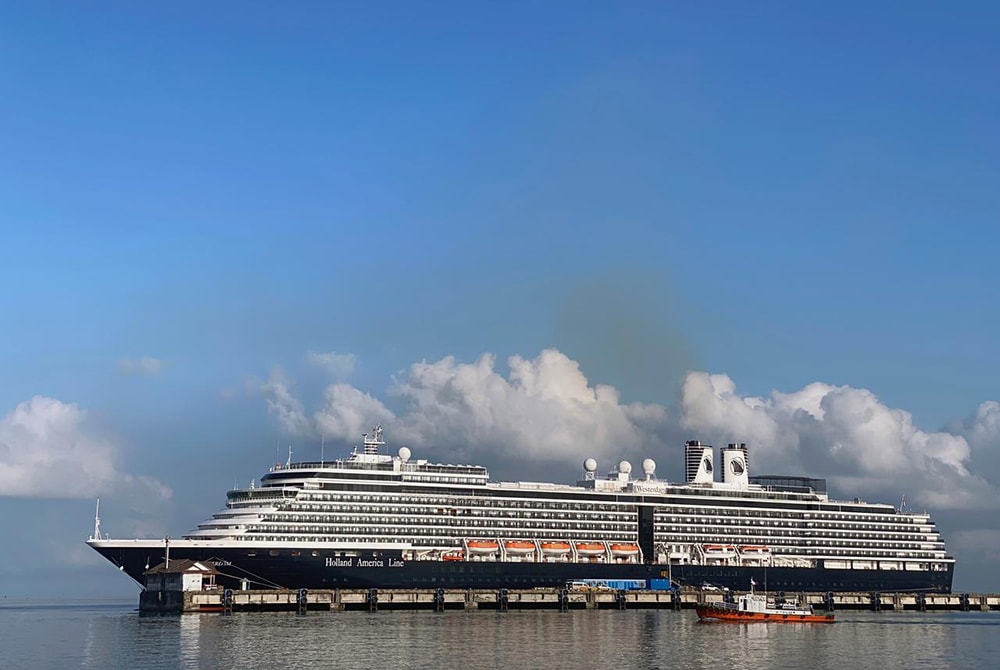 |
| Cruise ship MS Westerdam off the coast of Cambodia's Sihanoukville port on February 16. Photo: Reuters |
“If Cambodia does not allow the ship to dock, it will become a humanitarian crisis. Where will the ship go? They have run out of fuel, food and water,” Prime Minister Hun Sen said at the annual meeting of the Cambodian Ministry of Interior on February 20. In the context of the complicated developments of the Covid-19 epidemic, many countries have ordered the suspension of all travel activities with China, as well as issued warnings for their citizens to leave China if possible.
But Cambodia, an ally and frequent recipient of large sums of aid from China, is taking the opposite approach. In early February, Prime Minister Hun Sen visited Beijing and expressed support and confidence in China's ability to control the epidemic. Earlier, at a press conference in Phnom Penh, Prime Minister Hun Sen was annoyed that reporters were wearing masks. "The Prime Minister doesn't wear a mask, so why do you do it?" Hun Sen said, adding that "the more frightening disease is the irresponsible sharing of rumors online that causes public panic."
According to Xinhua News Agency, Prime Minister Hun Sen told Chinese President Xi Jinping that he decided to make a special visit to China to show Phnom Penh's support for Beijing in the fight against the outbreak. Prime Minister Hun Sen also said he wanted to visit Wuhan - the epicenter of the Covid-19 epidemic, but China politely declined his request.
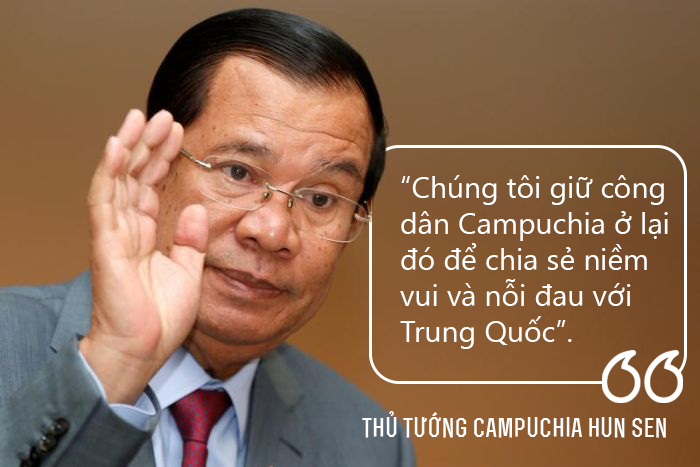 |
Relations between Cambodia and China have grown increasingly close and warm in recent years, especially since Prime Minister Hun Sen’s move to clamp down on all activities of the political opposition. The West has criticized this ban, which has inadvertently pushed Hun Sen to strengthen his partnership with Beijing.
From the start, Cambodia’s close ties with China have shaped its response to the Covid-19 outbreak. Cambodia, for example, has rejected the idea of evacuating its citizens from China, as some countries have done. “We keep Cambodian citizens there to share the joys and sorrows with China,” Prime Minister Hun Sen said, and he has not imposed a ban on flights to and from China. According to a report by Cambodia’s civil aviation authority, more than 3,000 travelers from Wuhan have flown to Cambodia since the outbreak was announced in January.
China has praised Cambodia’s decision not to evacuate students and impose travel restrictions on Chinese citizens, but Prime Minister Hun Sen said part of the reason was Phnom Penh’s fear of offending Beijing, which has led to sanctions such as the suspension of scholarships for Cambodians studying in China.
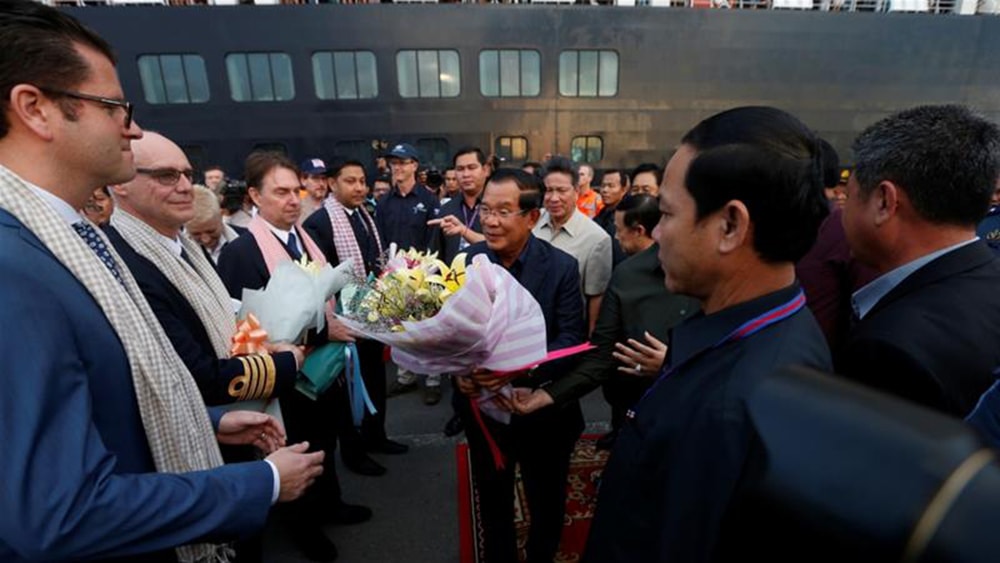 |
| Cambodian Prime Minister Hun Sen welcomes passengers of the MS Westerdam cruise ship. Photo: Reuters |
With its friendly approach, Cambodia has received much praise and admiration from China. Moreover, the leaders of Cambodia and China agreed to continue high-level exchanges in 2020, and elevate China-Cambodia relations to a new level, creating “an example for the world of true friendship between countries and peoples”. China also hopes that Prime Minister Hun Sen’s rejection of Covid-19 fear will set an example for the whole world.
Facing the nightmare scenario
The escalating tensions in Syria's Idlib province are pushing the relationship between Russia and Turkey to its "worst point yet." Turkish President Recep Tayyip Erdogan said that the talks in Moscow on Idlib had not yielded the expected results, and issued a final warning to the Syrian government that the Turkish military operation was only a "matter of time." Moreover, unable to repel the Syrian army's offensive and failing to convince Russia to pressure the Syrian government to withdraw its troops, Türkiye has "requested" the US to deploy the Patriot air defense system in Idlib, but so far Ankara has not received a response from Washington.
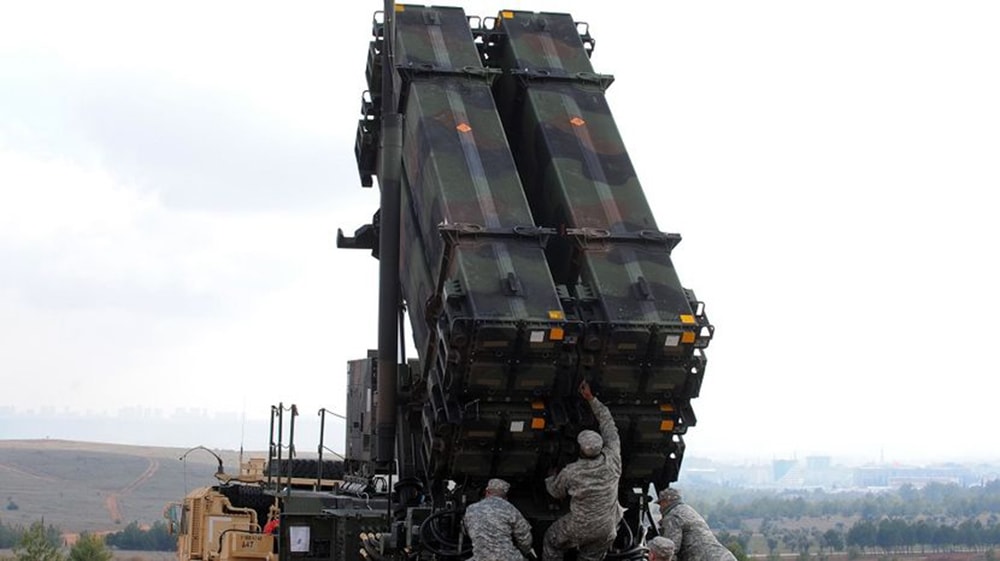 |
| Türkiye asks US for help bringing Patriot system to Syria. Photo: Bloomberg |
Türkiye's "appeal" move was made almost immediately after two Turkish soldiers were killed and five others were wounded in clashes with the Syrian army on February 20. An official close to Turkey's policymaking on Syria said that Ankara would increase its forces to ensure a ceasefire in Idlib. Therefore, it could use F-16 fighter jets to attack units loyal to President Assad in Idlib if Patriot missile systems are deployed to the Hatay region on the Turkish border to protect security. Elena Suponina, a Middle East expert in Moscow, said that by supporting the Syrian army, Russia has shown that it is ready to respond harshly. On the other hand, Ankara is also preparing for a possible clash with Russia. The escalation of tensions has pushed Russia-Turkey relations to the edge of a Cold War nightmare scenario.
The Russia-Turkey standoff is threatening to rupture the relationship, prompting Türkiye to reset ties with the US after years of tension. Although Türkiye’s offer was made to US special envoy for Syria James Jeffrey last week, Ankara has yet to receive a response.
The US-Turkey relationship has been at an unprecedented low point because Ankara insisted on buying the Russian S-400 missile defense system, despite Washington's strong objections and calling it a major threat to NATO. The US even removed Turkey from the F-35 program, accordingly, all Turkish pilots and technicians training with F-35 fighters in the US were expelled.
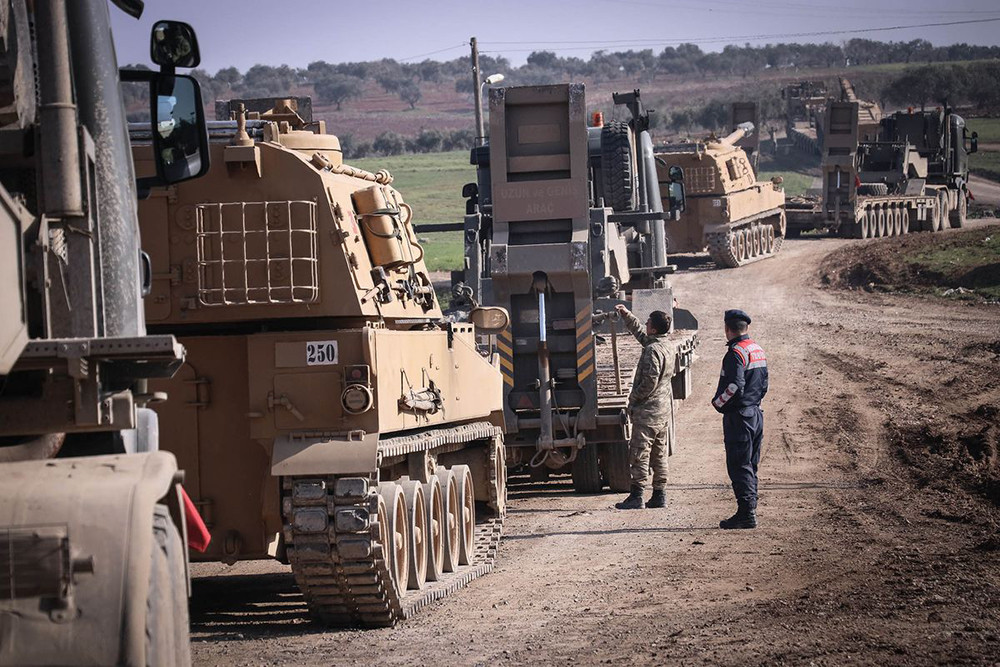 |
| Syrian army advances into Idlib. Photo: Getty |
In this context, the US is considering all possible responses to the escalating tensions in Syria. The US State Department has signaled stronger support for Türkiye and the rebels it backs in Idlib. Some diplomats have even called for the US to back Turkey against Russia. Meanwhile, the US Department of Defense is calling for de-escalation, asking forces loyal to the Syrian government to stop their offensive and allow humanitarian efforts in the area.
Ambassador Robert Ford, the last US ambassador to Syria, said: “NATO has never seen such intense fighting so close to the border of a member state.” Ambassador Ford suggested that the US government and NATO governments meet with Turkish officials to discuss establishing a safe zone for Syrian civilians on the Syrian-Turkish border. However, he stressed that he was not calling for the deployment of US troops in Syria because the presence of US combat forces in Idlib would be tantamount to a “World War III scenario.”

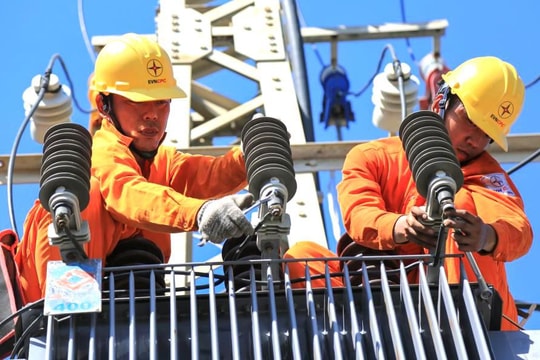

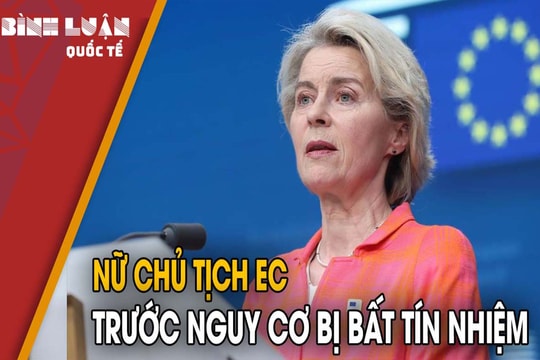
.jpg)
![[Infographics] 5 biện pháp phòng, chống dịch COVID-19 [Infographics] 5 biện pháp phòng, chống dịch COVID-19](https://bna.1cdn.vn/thumbs/540x360/2025/05/22/anh-2.jpg)

-5b8619d675cc4f38cedd8c853332ddab.jpg)
